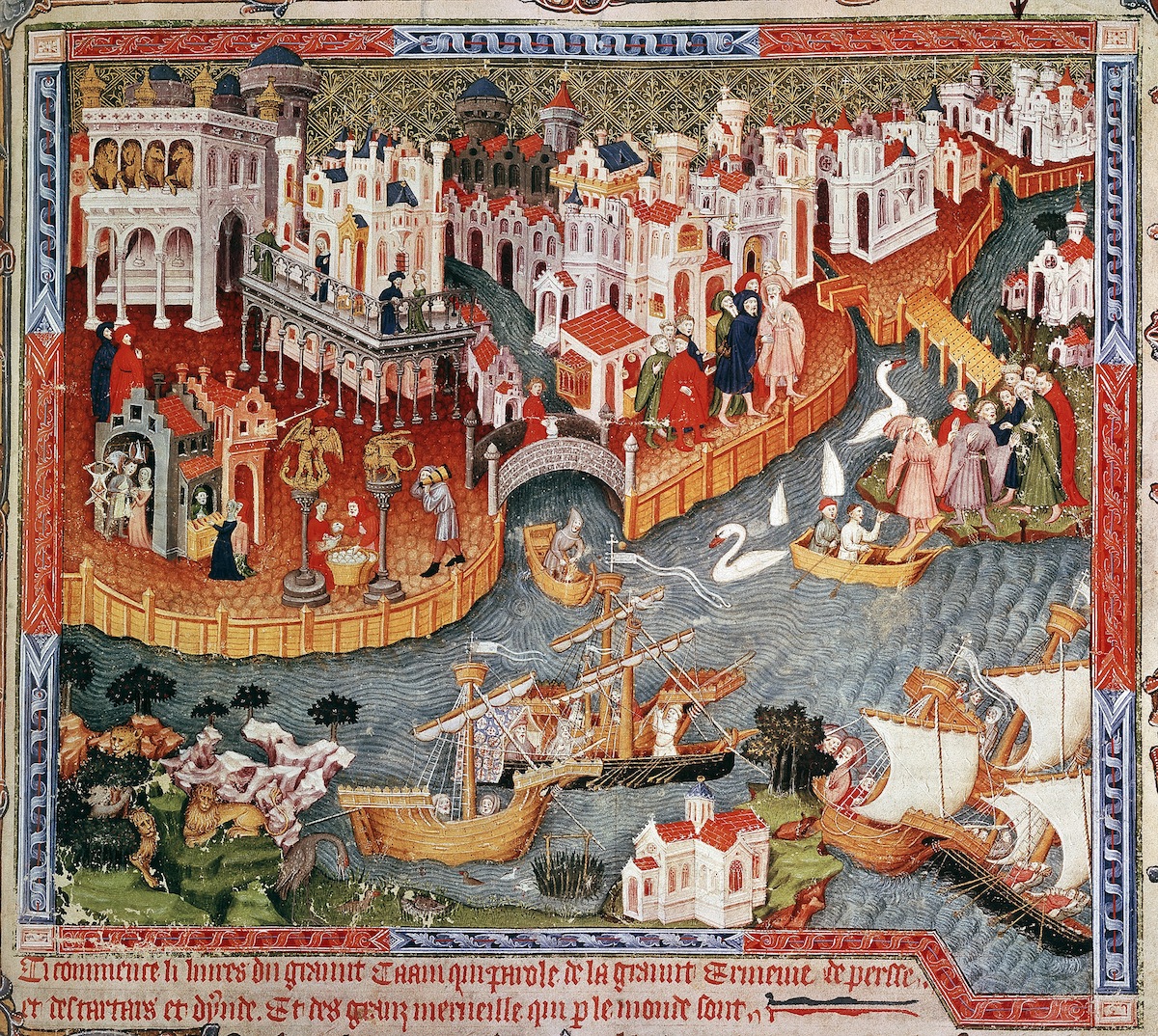

This post is in partnership with History Today. The article below was originally published at HistoryToday.com.
Plucky merchants, circumventing or breaking the rules, have promoted trade down the ages – governments, for the most part, have hindered it. At a time when negotiations for the Transatlantic Trade and Investment Partnership (TTIP) are at an impasse, governments on both sides of the Atlantic should beware of repeating history. If not, they risk irrelevance.
David Abulafia, preeminent historian of maritime trade, speaks at the Legatum Institute this week about his history of the Mediterranean, The Great Sea, and his current work: a history of the oceans. Abulafia shows that from the Greco-Roman period onwards, huge quantities of goods flowed in both directions between China and the Mediterranean through the Middle East and the Indian Ocean. These goods were transported by traders who had to overcome perilous seas, pirates and, most importantly, avaricious rulers.
The Silk Road was not, contrary to popular opinion, the preeminent trade route during the medieval period: far more was transported by ship. Coins from Iraq, Afghanistan, Persia and Spain have been found in Siraf, a port on the Iranian shore of the Persian Gulf and a trading hub in the 8th century. The 9th century saw the revival of the Greco-Roman trade routes in the Red Sea: Chinese pottery has been excavated in Ayla, located on the site of Aqaba in Jordan. Moving further east 12th century accounts survive of Abraham ben Yiju, a Jewish Merchant based in Mangalore. Ben Yiju imported arsenic from the west and sent back iron, mangos and coconuts from the east.
Abulafia describes a global network, stretching from Spain, and later the Atlantic, to Japan. This network arose not by governmental dictat but through the actions of traders. In doing so some made themselves fabulously rich: a 10th century book by the Persian author Buzurg describes the life of a trader called ‘Isaac the Jew’ whose cargo was worth an estimated million dinars – an incredible amount, given that a middle class family could have subsisted on 24 dinars per annum.
That is not to say that governments did not play their part in promoting trade. But their actions often hindered rather than helped. Trade, then as now, was seen as a source of revenue in many countries. Aden flourished as a point of exchange on the Indian Ocean. Customs officers there extracted tribute or taxes at the government checkpoint, taxes which were attractive enough to tempt the Persian Kish who attacked Aden in 1135. The many checkpoints that goods had to travel through inflated prices – spices were not so rare or the journey so arduous – yet consumers in Europe paid a high price. A lot of which lined the pockets of rulers.
Those who resisted, the forbears of modern free-traders, could find themselves in hot water. Isaac the Jew came to a nasty end after refusing the pay the rajah of ‘Serboza’ (assumed to be the Kingdom of Sri Vijaya) 20,000 dinars for passing through his territory.
When governments weren’t taxing trade they were often disrupting it in other ways. In the 1180s the crusader lord Reynaud de Châtillon launched an attack on Mecca and on the traffic passing through the Red Sea. The result, after Reynauld’s failure, was the closure of the Red Sea to non-Muslims.
This is not to suggest that merchants were all saints preyed upon by dastardly rulers. As the Ottomans took over more territory in the eastern Mediterranean in the 15th and 16th centuries European merchants looked for other markets to obtain sugar. The result was an expansion of economic activity in the newly discovered Atlantic islands. With a little help from Christopher Columbus, a Genoese merchant, this would eventually lead to the Caribbean sugar trade and the slave trade.
This brings us back to the TTIP. History, both ancient and more recent, tells us that economic activity usually finds a way: whether its money-lenders finding loopholes in the usury laws in the 12th century or investment bankers engaged in off-balance sheet transactions in the 21st. The challenge for governments is to prevent the more egregious forms of commercial activity without throttling enterprise altogether. The history of maritime trade in the Medieval period shows that rulers usually fail to achieve both objectives – hopefully today’s leaders will not make the same mistake.
Stephen Clarke is a Research Analyst at the Legatum Institute, London.
The Legatum Institute is currently running the History of Capitalism Programme, a series of lectures which explores the origins and development of a movement of thought and endeavour which has transformed the human condition.
More Must-Reads from TIME
- Cybersecurity Experts Are Sounding the Alarm on DOGE
- Meet the 2025 Women of the Year
- The Harsh Truth About Disability Inclusion
- Why Do More Young Adults Have Cancer?
- Colman Domingo Leads With Radical Love
- How to Get Better at Doing Things Alone
- Michelle Zauner Stares Down the Darkness
Contact us at letters@time.com